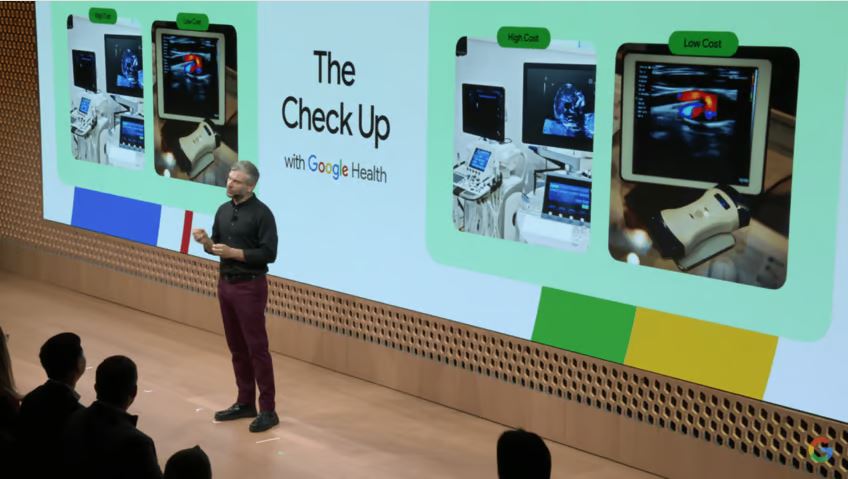Google recently unveiled its latest foray into the health care arena – a suite of AI models dubbed MedLM designed specifically to assist clinicians and medical researchers. While the potential seems promising, many experts urge cautious optimism given AI’s proclivity for mistakes and the sensitive nature of patient health data.
This move represents Google’s most concerted effort yet to carve out a piece of the lucrative health care pie. With competitors like Microsoft and Amazon similarly vying for health care dollars, Google aims to sell its AI tools to hospitals, health systems, and life sciences companies. The models can supposedly conduct large-scale studies, summarize doctor-patient conversations, optimize workflows and more.
But some of the most tantalizing applications lie just beyond reach for now. MedLM cannot reliably diagnose conditions or recommend treatments due to its propensity for error. And Google’s shiny new system Gemini, which can supposedly chat conversationally on any topic, requires much more rigorous testing before unleashing it on unsuspecting patients. Still, several major health systems are already putting MedLM through its paces with promising results so far.
HCA Healthcare, USA’s largest hospital chain, is testing MedLM to auto-generate physician notes and nurse handoff reports. For harried ER doctors spending hours on paperwork, automatically producing even rough drafts of patient visit notes could prove invaluable. HCA is also keen to streamline the exhaustive process of nurse shift changes. With over 400,000 handoffs occurring weekly across HCA’s vast hospital network, small efficiency gains can significantly impact patients and nurses.
However, HCA execs report mixed results so far. While AI-generated notes have reached over 60% accuracy, errors still pepper the computer’s work. And MedLM often fails to grasp health providers’ true workflow needs or interpret their medical jargon. As one executive put it, “the hype around the current use of these AI models in health care is outstripping the reality.” No hospital has yet unleashed these tools at scale due to risks of potential patient harm.
Still, doctors appreciate seeing workload relief on the horizon, even if MedLM needs plenty more tweaking. HCA continues working closely with Google to improve the AI, while vigilantly monitoring its use to avoid applying it in potentially dangerous clinical scenarios. As this health care giant sounds a cautious note, it’s clear that despite AI’s promise, providers must walk before they can run when deploying such powerful technologies.

Other major players share this guarded optimism. Deloitte consultants employ MedLM to help patients access care, while BenchSci uses it to accelerate research crucial to drug discovery. But both companies took pains to thoroughly validate Google’s models before unleashing them. BenchSci’s CEO states outright that “[MedLM] doesn’t work out of the box,” requiring extensive customization to solve clients’ problems. Deloitte, meanwhile, found that MedLM falters when patients phrase questions differently than its training data.
So expectations for immediate revolution should be tempered. As one Deloitte leader wisely notes, AI should “bring expertise closer and make it more accessible” rather than wholesale replace human clinicians. But this still marks a monumental step toward AI assistance with knowledge work in such a high-stakes field. The smartest health systems will tap these tools cautiously, while partnering closely with Google to navigate the risks.
And risks certainly abound when introducing biased algorithms to such sensitive settings. Runaway AI could theoretically harm vulnerable groups, exacerbate disparities, or violate privacy rights. This potential dark side sparks calls for thoughtful regulation before issues metastasize. Guidelines around appropriate medical uses and human oversight controls could help institutions implement innovations prudently.
Researchers also suggest “AI safety tests” focused on distributional shifts and concept drifts likely to cause errors during deployment. Adopting best practices around auditing datasets for bias and monitoring models over time may prevent unintended harm. Without deliberate care, even well-intentioned tools can produce painful failures.
But the most peril comes from hype exceeding reality as overzealous adopters plunge ahead. So realistic assessments of MedLM’s capabilities are crucial for setting reasonable expectations. Leaders at Google’s health care cloud business preach patience, claiming that expertise from clinical partners is essential to reaping benefits. This partnership angle may well be the secret sauce helping organizations strategically apply AI where it shines while sidestepping blindspots.
Certainly enormous potential exists if stakeholders collaborate thoughtfully. Consider HCA’s goal of generating accurate medical notes or optimizing endless nurse handoffs. Even moderate improvements multiplied across the entire U.S. health system might save billions in wasted dollars and hours. More importantly, it could free up precious time for doctors and nurses burned out after battling a global pandemic.

But rather than forcing square-peg solutions, Google must listen carefully to each health partner’s unique needs. Meanwhile stakeholders like HCA and Deloitte must provide robust feedback and stewardship to hone AI for helpfulness while mitigating unintended impacts. This shared quest to amplify human potential without sacrificing ethics or accountability will determine whether Google’s health care moonshot pays dividends.
With cautious steps grounded in patience and partnership instead of profits alone, transformative change just might emerge. But reckless rush toward an AI-powered health utopia could collapse under the weight of real-world complexity. The promise glitters brightly, but the perils lurk ominously in the shadows. Google and its clinical collaborators now bear the sober responsibility of navigating safely toward the light.
Copyright©dhaka.ai
tags: Artificial Intelligence, Ai, Dhaka Ai, Ai In Bangladesh, Ai In Dhaka, USA



